Bliss in Baltimore
How a nonprofit in Baltimore City is working with and for their community.
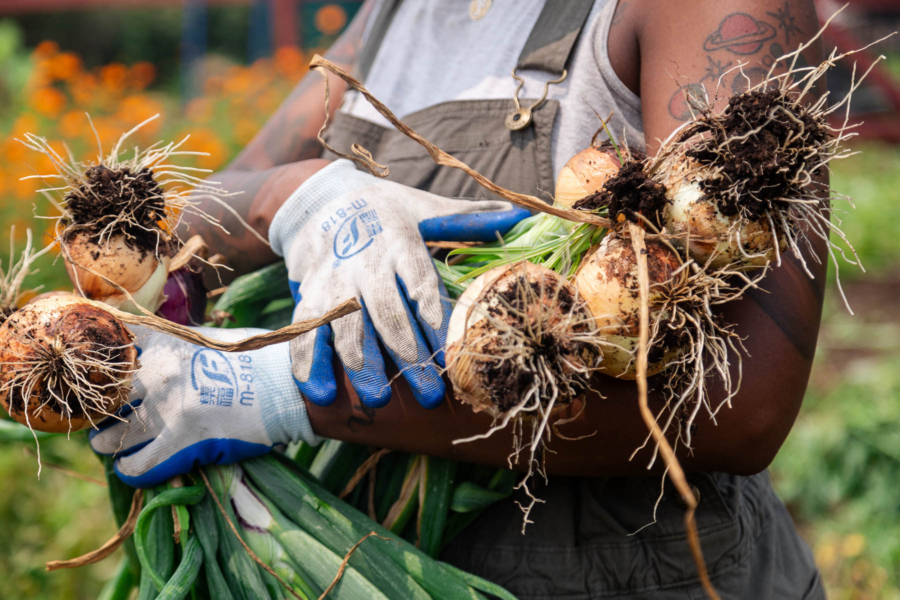
According to the Baltimore Office of Sustainability, the city has at least three times as many Black-led farms as it had ten years ago, however that number is still only a fraction compared to the total number in Maryland. Baltimore City has over 20 urban farms and 100 community gardens; one of which is BLISS Meadows just off Moravia Avenue in northeast Baltimore.
The property is owned and operated by a nonprofit called Backyard Basecamp, founded by Baltimore City resident, Atiya Wells. BLISS, a program of the nonprofit, stands for “Baltimore Living In Sustainable Simplicity” and was established in 2017. Wells is a nurse, mother, wife, naturalist and outdoor enthusiast.
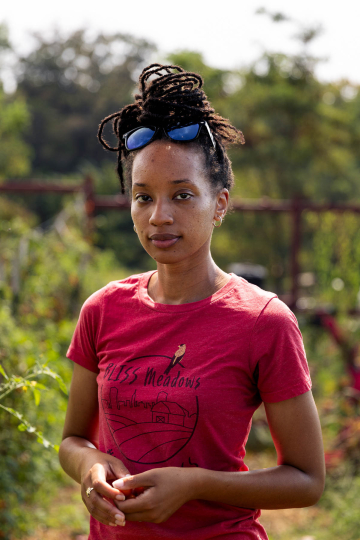
Prior to forming Backyard Basecamp, Wells was leading a group called Free Forest School of Baltimore, where preschool-aged kids and their families would meet her at a park to read stories, sing songs and have the opportunity to play outside. In a matter of weeks, kids were approaching Wells with questions regarding the plants and animals they saw in the area. So, Wells got to work, signing up for workshops, including the Maryland Master Naturalist program, taking the time to get to know local plant and wildlife species.
Through this educational experience she often noticed the lack of diversity within these courses. “A lot of these classes were happening in and around Baltimore City, and the demographics of our city are largely Black and Brown,” Wells said, “Why am I always the only one or part of the few?”
Wells set out on a journey to research the relationship between Black people to nature and being outside. “I just learned that, through ancestral trauma and generational wounding, we've just come to associate the outdoors with fear. Because of our tumultuous past with colonization, and enslavement, we have come to view the outdoors as being not something that's for us,” Wells said.
This inspired Wells to find and create a space where Black, Indigenous and people of color (BIPOC) can reconnect with nature in Baltimore. “We use the farm here at BLISS Meadows as sort of like a gateway drug into a deeper nature connection,” Wells explained. Through this process, Wells has come to see outdoor space as something that is a part of who we are as humans. “I always say we're not new to this, we're true to this. And it's in our DNA, it's in our blood.”

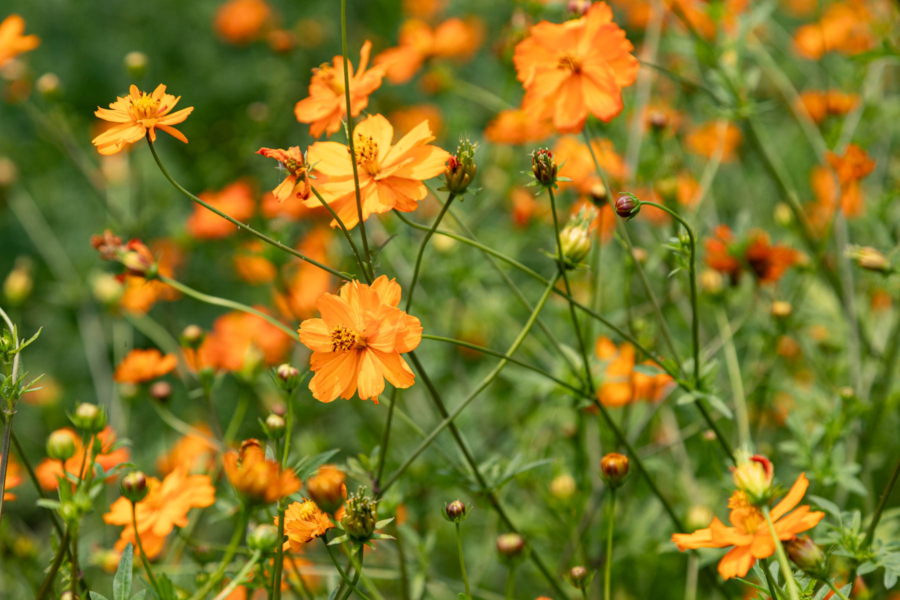
The mission of Backyard Basecamp was born. And Wells, alongside her husband, Kieron George, got to work. Today, the property has a space where produce is grown and sold at weekly farm stands, 30 honeybee hives, an outdoor classroom, a peace garden, goats, chickens, a fruit tree orchard, a medicinal herb garden, a pollinator meadow and seven acres of forested land where wilderness classes and summer camp are held. Most recently, Backyard Basecamp finished renovations on an onsite farmhouse purchased in 2019 which will serve as a base of operations for their team. A portion of the property was previously owned by a local resident, Greg Cantori, who donated the space to Backyard Basecamp.
At BLISS, deer can be seen nesting along the forest line, hawks hunt in the meadow and foxes roam the peace garden. The space has become a refuge for urban wildlife and has also become a resource for the local community.
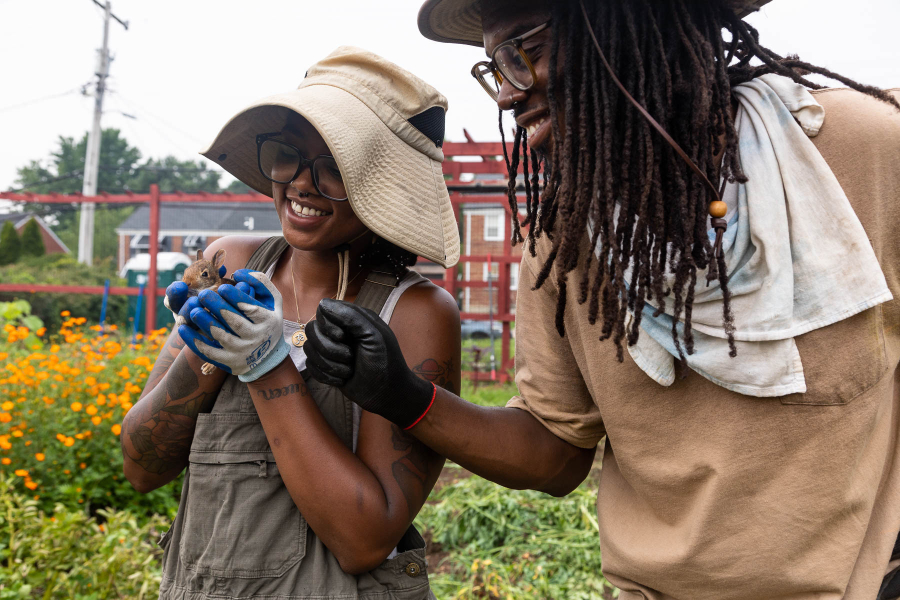
During the height of the COVID-19 pandemic BLISS provided an accessible green space and affordable produce for community members. “People started coming here as more of a resource, which is what we always intended to be, but to see it happen was really heartwarming,” Wells said.
Likewise, George believes in community and equity as the core values of Backyard Basecamp and is always looking to build connections. “Come through, see what we're doing. Talk with us. Learn, get access to resources,” George said, “I'm here to support any organization or person that wants the best for Baltimore—period.”
While Backyard Basecamp is a nonprofit, Wells is quick to point out that it functions more like a cooperative. “One thing that's really important to me is that the way that we present externally, we also are internally, so the community building that we do externally, we also need to do internally with our staff, and our contractors as well,” Wells said.
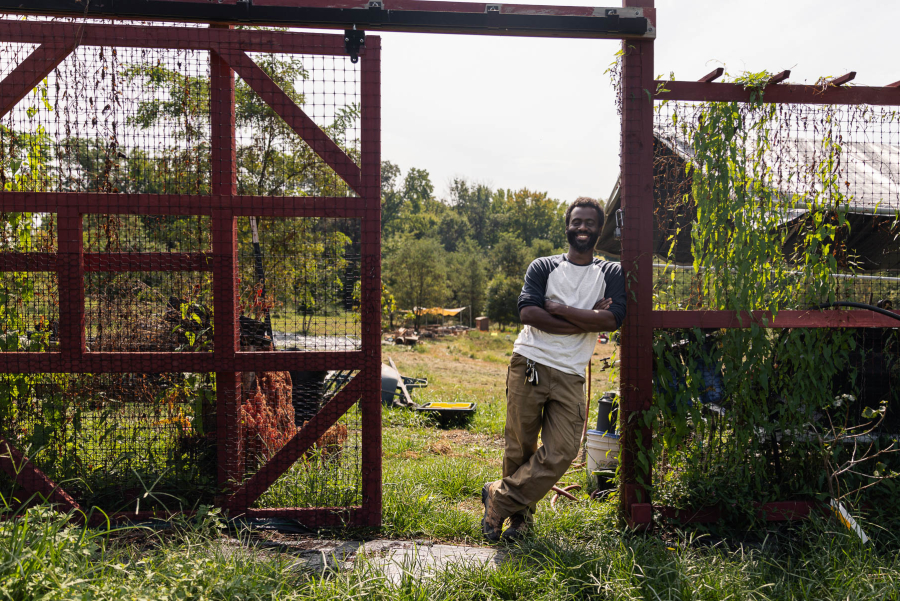
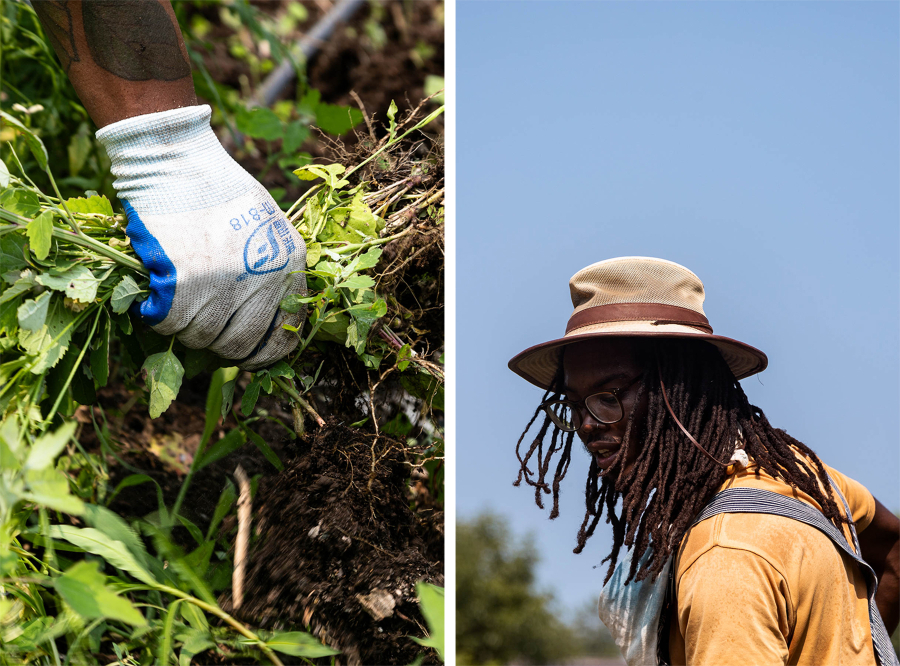
Saj Dillard and Jordan Bethea are BLISS Meadows’ farm manager and production manager, respectively. They can be found working in the grow space, tending to honeybees and livestock and running the farm stand every week.
Working a farm as a nonprofit comes with its own challenges. Team members find themselves having to develop new skills, learn on the job and be flexible to hurdles. But Dillard and Bethea found support and purpose through Backyard Basecamp and the organization’s mission. “I realized that God has put people in my life that see more in me than I see in myself, to not necessarily live up to their standards but live up to the standards that they see in me, and to maybe see that in myself as well,” says Dillard. “We are urban agriculturalists—in addition to being herbalists, in addition to being beekeepers, in addition to being florists. But above all, we are here to develop community, and make sure that the community that already exists, can grow in ways that it wouldn't have been able to without a space like this,” Bethea said.
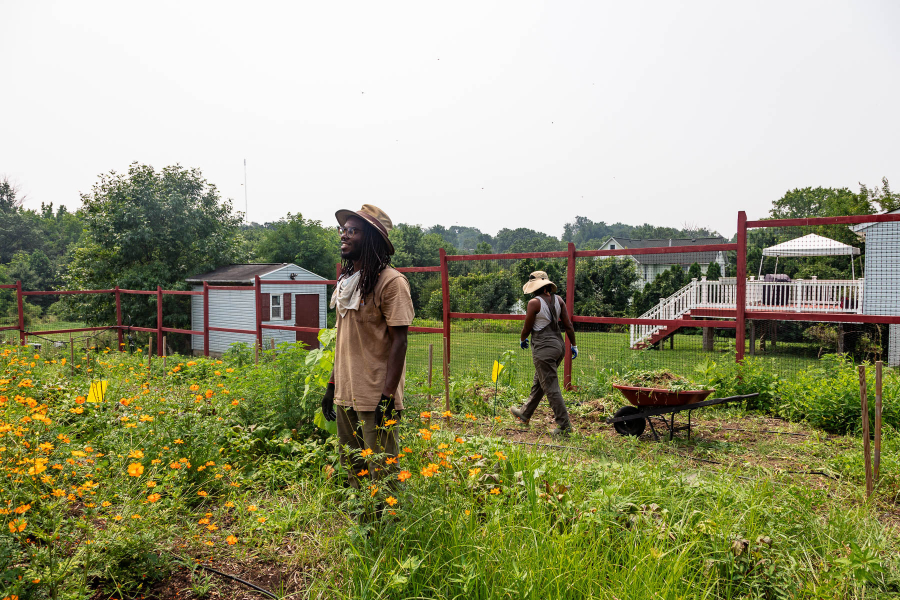
Since its beginning, the team has been determined to build Backyard Basecamp and BLISS into something that will last beyond their own lifetimes. “My dream is that kids who are in our summer camp programs grow up and be our replacements,” Wells said. “At some point, it might be a historic site for people that come in and just discuss what it did for the city in the far future after we're long gone,” George added.
Backyard Basecamp is not slowing down and is nearing the completion of phase two of three in its master plan: cultivating the land, creating trails in the forest and renovating the farmhouse.
Their third phase is expected to start soon—it is all about implementing programs such as community cooking classes and summer camp at full scale while sustainably educating and building their community. “I enjoy the work that we do. And I enjoy the way that I feel like our work makes other people feel,” Wells said.

Comments
There are no comments.
Thank you!
Your comment has been received. Before it can be published, the comment will be reviewed by our team to ensure it adheres with our rules of engagement.
Back to recent stories